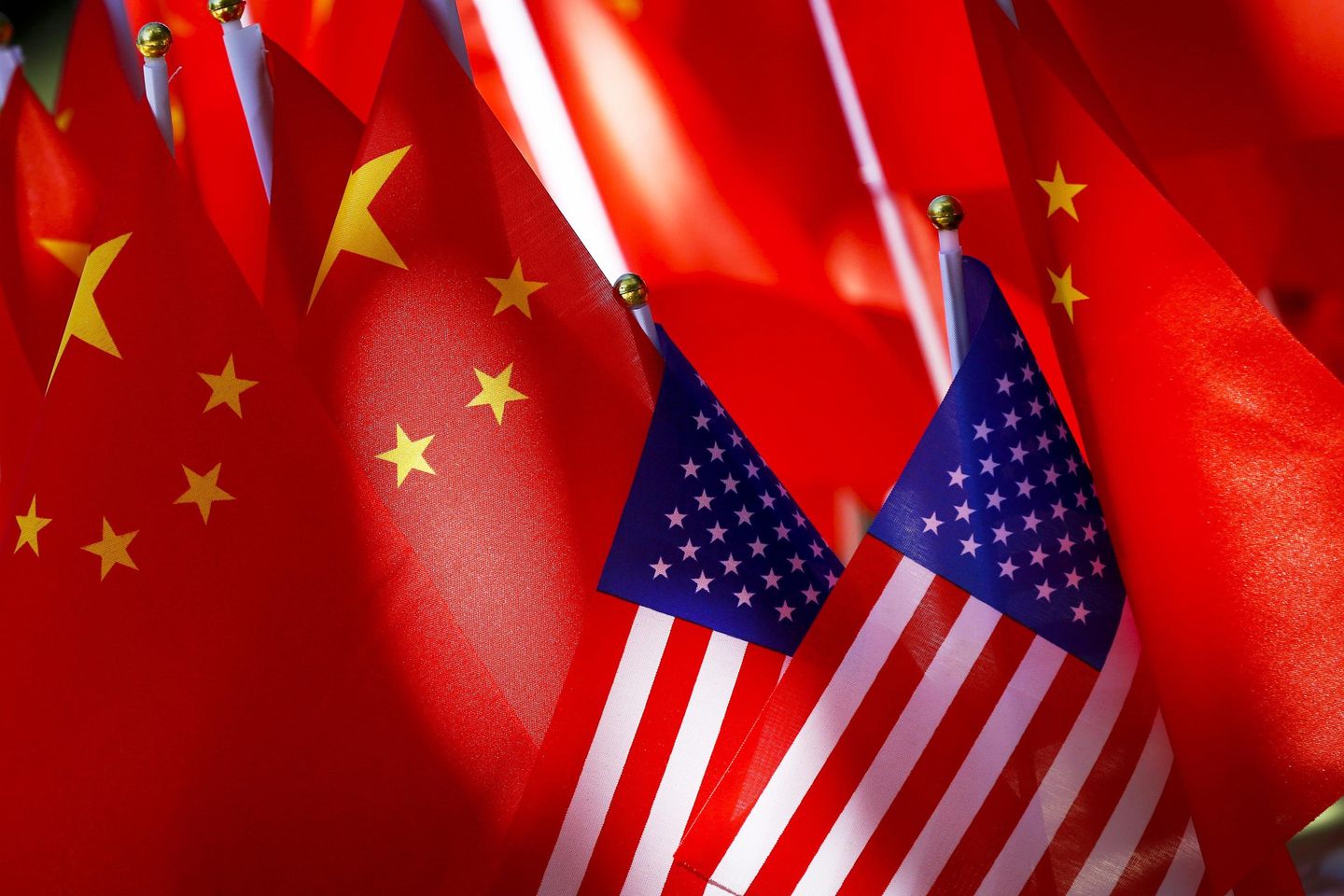
The State Department has begun to “aggressively” revoke visas for hundreds of thousands of Chinese students in the United States over concerns the communist nation is using the students to steal U.S. technology.
The visa cancellations are focused on students who have connections to the Chinese Communist Party or those studying in critical university fields.
“We will also revise visa criteria to enhance scrutiny of all future visa applications from the People’s Republic of China and Hong Kong,” Secretary of State Marco Rubio said in a statement announcing the action.
The statement said the action is in line with policies of putting “America first, not China.”
China has an estimated 270,000 students studying at American universities.
U.S. security officials say Chinese students are being used by the Chinese Communist Party to obtain U.S. research, intellectual property and technology that will enhance the Chinese military.
A 2018 report by the White House estimated that losses due to Chinese theft of technology and intellectual property ranged between $180 billion and $540 billion annually.
The students have also been linked to intelligence-gathering and harassment of Chinese dissidents, said State Department spokeswoman Tammy Bruce.
The policy gained support from congressional Republicans.
“America’s student visa system has become a Trojan horse for Beijing, providing unrestricted access to our top research institutions and posing a direct threat to our national security,” said Rep. John Moolenaar, chairman of the House Select Committee on the Chinese Communist Party. “This is exactly the kind of action we need.”
Mr. Moolenaar said the CCP has set up a systemic pipeline that embeds researchers in leading U.S. institutions and provides direct access to sensitive technologies with military applications.
“If left unaddressed, this trend will continue to displace American talent, compromise research integrity and fuel China’s technological ambitions at our expense,” he said.
In a related development, a new report by a think tank focused on China security issues says Chinese students in the United States are organized through student and scholar groups across the U.S. that are funded and controlled by Beijing.
The groups were set up as student-run organizations with support from the Chinese Communist Party and have been engaged in the harassment of dissidents and Beijing propaganda.
“Evidence from U.S. government sources — including the State Department, FBI and congressional commissions — shows that many CSSAs are closely linked to Chinese consulates and operate under guidance or financial support from Chinese diplomatic missions,” the report by the CCP Biothreats Initiative stated.
“These links often make them conduits for advancing Beijing’s political narratives abroad and monitoring or suppressing dissent among overseas Chinese.”
Security analysts also say Chinese government regulations require all Chinese nationals to support CCP policies and, in some cases, engage in intelligence-gathering or work on behalf of the Ministry of State Security, the civilian spy service.
Ms. Bruce at the State Department declined to specify the criteria that is being used in the student visa revocations.
But she said the United States is using “every tool in our tool chest” to protect national security and identified the visa process as a key element.
“Every sovereign nation has a right to secure its borders,” she told reporters.
Beijing reacted to the visa revocations by stating the government opposes the action and urged protection of its overseas nationals.
Foreign Ministry spokeswoman Mao Ning said the visa revocations are unjustified, using “ideology and national security as a pretext.”
“This politically motivated and discriminatory move exposes the U.S. hypocrisy over freedom and openness,” Ms. Mao said, adding that it will damage the image and reputation of the United States.
The visa cancellation policy “seriously hurts the lawful rights and interests of international students from China and disrupts people-to-people exchanges between the two countries.”
The report on Chinese student associations identified major universities where the CCP-linked groups are operating.
They include the University of Michigan, Cornell University, Purdue University, University of Southern California, University of California, Los Angeles, Ohio State University, Columbia University, University of California, Berkeley, Pennsylvania State University, Emory University, University of Houston, University of Missouri, University of Nebraska–Lincoln and Brandeis University.
Many of those universities are engaged in high-technology work and sensitive research.
The pro-China group Committee of 100 criticized the new visa policy. “This new visa policy will adversely and profoundly affect our colleges and universities, research institutions, scientific discovery, and startups in ways we have yet to fully comprehend,” said Gary Locke, the committee chairman.
Retired Navy Capt. Jim Fanell, a former Pacific Fleet intelligence director and China expert, said the Chinese student revocations are long overdue.
“Generations of unvetted students who are under the thumb of the Chinese Communist Party, either willfully or through coercion, have essentially invaded our academic institutions,” Capt. Fanell said.
Access by Chinese students who originate from an adversary communist power to key national defense research and development sectors should never have been allowed, he said.
The new policy on visas is part of a Trump administration effort to tighten up controls over access to the United States.
“Despite complaints, the fact remains America let its guard down over the past few decades in pursuit of engagement with the CCP and the myth that such engagement would transform them from their Marxist-Leninist agenda,” Capt. Fanell said. “It is time to restore our intellectual integrity and rid our nation from the influence of this pernicious ideology.”
Chinese students studying in the United States were left confused regarding their futures, the Associated Press reported from Hong Kong.
A Chinese national studying at Johns Hopkins said the visa policy is a new version of the Chinese Exclusion Act, a 19th-century law ending immigration from China and limiting citizenship for Chinese nationals in the country.
The student, identified only as Liqin by the Associated Press, said he is considering leaving the United States after spending a third of his life in the country.
Zou Renge, a Chinese public policy master’s student at the University of Chicago, said she had planned to take time off after graduating at the end of this year.
Ms. Zou will not leave the United States and will instead look for work. “In a very uncertain environment, I’ll try my best to find myself a solution,” she said.


![Tulsi Gabbard Calls for Arrest of James Comey Over Call to Assassinate Trump [WATCH]](https://www.right2024.com/wp-content/uploads/2025/05/Tulsi-Gabbard-Calls-for-Arrest-of-James-Comey-Over-Call-350x250.jpg)

![Declaration Gaffe, Whisper Creep, and Conflicting Cancer Claims [WATCH]](https://www.right2024.com/wp-content/uploads/2025/05/Declaration-Gaffe-Whisper-Creep-and-Conflicting-Cancer-Claims-WATCH-350x250.jpg)


![Trump Drops Bombshell Video Linking Clintons to Mysterious Deaths [WATCH]](https://www.right2024.com/wp-content/uploads/2025/05/Trump-Drops-Bombshell-Video-Linking-Clintons-to-Mysterious-Deaths-WATCH-350x250.jpg)

![Bessent Exposes Media Lies About April’s Stock Market Performance [WATCH]](https://www.right2024.com/wp-content/uploads/2025/04/Bessent-Exposes-Media-Lies-About-Aprils-Stock-Market-Performance-WATCH-350x250.jpg)







